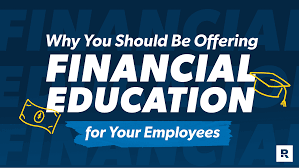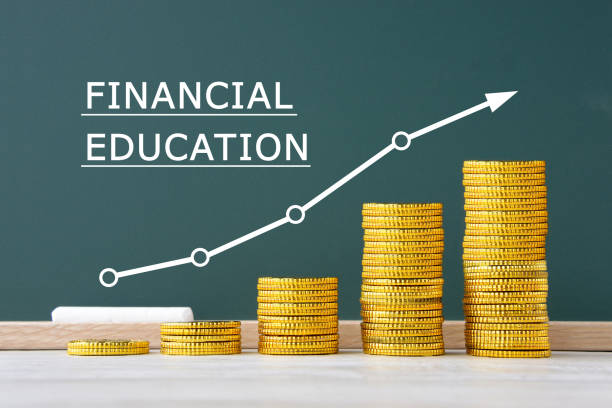What is Personal finance education resources

In today’s complex and ever-changing financial landscape (meaning), personal finance education has become imperative for individuals seeking to navigate the intricacies of money management. From budgeting to investing, personal finance encompasses a wide range of topics (see different topics here), each demanding unique knowledge and skills. Fortunately, there are various resources available to those eager to expand their financial literacy and empower themselves with the necessary tools for a healthy financial future. See different types of personal finance education resources here and provide examples that can aid individuals in their journey towards financial well-being. https://www.investopedia.com/best-resources-for-improving-financial-literacy-5091689
LONDON BUSINESS SCHOOL Personal finance education resources
COURSES BY CAREER STAGE
Click below to Discover in details the right course for your professional challenges and business needs;
Certificate in Finance
Certificate in Finance is a tailored learning route for professionals in finance. Take four Executive Education programmes in any order over 24 months.
Certificate in Management
Enhance your leadership and business skills with a comprehensive learning journey tailored to you. Create a curriculum to fit your needs and aspirations, and learn at your own pace.
Discover our full suite of programmes
Not sure which programme is right for you? Download our comprehensive Executive Education Calendar for more information on our world-class programmes.
COURSE SCHEDULE
Upcoming courses
Learn from world-class faculty and industry practitioners in London or Online. Our finance courses leverage the latest research insights to develop your strategic decision-making and equip you with the practical tools and techniques for success.
1. what is personal financial literacy

Personal financial literacy refers to the knowledge skills necessary to make informed and effective financial decisions. It encompasses a range of financial topics such as budgeting, saving, investing, and managing debt. In today’s complex and ever-changing financial landscape, having a solid understanding of personal finance is crucial for individuals to achieve their financial goals and lead financially secure lives. auto insurance companies
Examples of personal financial literacy on What is Personal finance education resources
- Building wealth
- Avoid financial debt
- Avoid financial stress.
- Empowerment
2. what are some financial resources
In today’s fast-paced world, we are often faced with numerous financial challenges, from managing our expenses to planning for the future. However, the good news is that there are several financial resources available to assist us in navigating these complexities. https://dfi.wa.gov/financial-education/educators/high-school. Here are some key examples of financial resources that can prove valuable in achieving our financial goals. homebuying tips in the united states
Financial Literacy Programs
One of the most crucial aspects of achieving financial stability is gaining a solid understanding of personal finance. Financial literacy programs offer a wealth of information and resources to educate individuals about topics such as budgeting, debt management, and investing. Organizations such as the National Endowment for Financial Education (NEFE) and the Financial Literacy and Education Commission (FLEC) provide comprehensive financial literacy programs for people of all ages. get life insurance in the united states
- Budgeting: Learn how to create a realistic budget that aligns with your financial goals.
- Track your income and expenses to gain a clear understanding of your financial situation.
- Identify areas where you can cut back on expenses and save more money.
- Debt Management: Discover strategies to effectively manage and pay off debt.
- Learn about debt consolidation options and prioritize debt repayment.
- Understand the pros and cons of different debt repayment strategies, such as the snowball or avalanche method.
- Investing: Explore the world of investing and learn how to grow your wealth.
- Gain knowledge about different investment vehicles, such as stocks, bonds, and mutual funds.
- Understand the concept of risk and diversification to make informed investment decisions.
3. List of financial resources
- beginners and experienced investors alike.
- Financial Apps
- Mint
Mint is a popular personal finance app that helps users track their spending, create budgets, and manage their overall financial health. It provides a comprehensive overview of one’s financial accounts in one place, making it easy to stay on top of one’s financial goals. medical insurance
Acorns
Acorns is a micro-investment app that allows users to invest spare change from their everyday purchases. By rounding up transactions to the nearest dollar and automatically investing the difference, Acorns aims to make investing accessible to everyone, even in small increments.
Financial Planning Tools
Personal Capital
Personal Capital is a robust financial planning tool that provides a holistic view of one’s financial life. It offers features such as budgeting, retirement planning, investment analysis, and even access to financial advisors, ensuring individuals have all the necessary tools to make sound financial decisions.
Quicken
Quicken is a powerful personal finance softwares that helps users manage their finances efficiently. It allows individuals to track income and expenses, create budgets, and generate detailed financial reports. With its intuitive interface, Quicken simplifies the task of organizing one’s financial information. real estate
4. What is Personal finance education resources
In the dynamic world of personal finance, staying well-informed is paramount to making sound financial decisions. Fortunately, there are numerous resources available to help individuals enhance their financial literacy and empower them to achieve their financial goals. This article aims to explore various types of personal finance education resources, providing a comprehensive guide for individuals seeking to expand their knowledge in this field.
Books on Personal finance education resources
Books have long been a trusted source of information and personal finance is no exception. With an extensive range of titles available, readers can find books catering to their specific financial needs and interests. Some notable books include:
“Rich Dad Poor Dad” by Robert Kiyosaki: This classic book challenges conventional thinking about financial success and provides insights into building wealth and achieving financial independence.
“The Total Money Makeover” by Dave Ramsey: Ramsey presents practical steps for eliminating debt and building a solid financial foundation, making it an essential resource for anyone looking to regain control of their finances.
“The Millionaire Next Door” by Thomas J. Stanley and William D. Danko: This eye-opening book examines the characteristics and habits of wealthy individuals, debunking common myths about wealth and offering valuable lessons on personal finance. loans and credit
Online Courses on Personal finance education resources
In today’s digital age, online courses have emerged as a convenient and accessible way to learn about personal finance. These courses often offer interactive modules and provide a structured learning experience. Some reputable platforms offering personal finance courses include:
Coursera: Coursera partners with renowned universities and institutions to offer courses on various aspects of personal finance, such as budgeting, investing and retirement planning.
Udemy: With a vast selection of personal finance courses, Udemy allows learners to choose from different skill levels and areas of interest, ensuring flexibility and customized learning experiences.
Khan Academy: Known for its comprehensive educational content, Khan Academy offers free, self-paced courses covering a wide range of personal finance topics, making it accessible to all. lawyer and attorney
Podcasts
Podcasts have gained significant popularity as an on-the-go resource for personal finance education. They offer a convenient way to learn from experts and stay updated with the latest financial trends. Here are a few noteworthy personal finance podcasts:
“ChooseFI” hosted by Jonathan Mendonsa and Brad Barrett: This podcast explores the path to financial independence, covering topics like investing, frugality, and entrepreneurship, with a focus on actionable tips for listeners to implement in their own lives.
“The Dave Ramsey Show” hosted by Dave Ramsey: Ramsey, a renowned personal finance expert, provides practical advice on various financial topics, including budgeting, debt management, and retirement planning (types).
“Financial Independence Podcast” hosted by Jonathan and Brad from Choose FI: This podcast delves into the stories and strategies of individuals who have achieved financial independence, offering inspiration and insights for listeners seeking financial freedom.
Financial Blogs
These blogs are an excellent resource for staying informed about personal finance trends and strategies. They offer a platform for experts and enthusiasts to share their knowledge, often providing practical tips and relatable stories. Here are a few notable financial blogs:
“Mr. Money Mustache” by Pete Adeney: Adeney’s blog explores the concept of early retirement and financial independence, emphasizing frugality, sustainable living and investment strategies.
“The Points Guy” by Brian Kelly: Focusing on travel and credit card rewards, this blog educates readers on maximizing their travel experiences through savvy credit card usage and loyalty programs (click here).
“Budgets Are Sexy” by J. Money: J. Money shares personal stories, budgeting hacks, and investment insights, creating a relatable and engaging platform for readers seeking financial guidance. insurance and car insurance
Government Resources on Personal finance education resources
Government resources can provide reliable and unbiased information on personal finance matters. These resources often cover a wide range of topics and can be particularly useful for understanding legal and regulatory aspects (click here) related to personal finance. Some notable government resources include:
U.S. Securities and Exchange Commission (SEC):. The SEC website offers a wealth of information on investing, financial fraud prevention. And regulations aimed at protecting investors. https://www.consumerfinance.gov/consumer-tools/educator-tools/adult-financial-education/tools-and-resources/
Consumer Financial Protection Bureau (CFPB):. CFPB provides valuable resources on various personal finance topics, such as mortgages, credit cards, and student loans, with a focus on consumer protection and financial well-being. Cryptocurrency to buy here
Internal Revenue Service (IRS): The IRS website serves as a comprehensive resource for tax-related information, including forms, publications, and guides to help individuals navigate the complexity of tax laws.
FAQs: Personal Finance Education Resources

Understanding personal finance is crucial for managing your money effectively. This comprehensive guide will address key topics like insurance, loans, mortgages, and credit. Whether you’re looking to make informed financial decisions or seeking help from a lawyer or attorney, this guide will provide valuable insights and resources.
What is Personal Finance?
Personal finance encompasses managing your money, including savings, investments, insurance, loans, and retirement planning. It’s essential to educate yourself about these aspects to ensure financial stability and growth.
Why is Financial Education Important?
Financial education helps you make informed decisions about money management, which can lead to better financial health. It can prevent debt, increase savings, and help you achieve your financial goals.
Insurance: Protecting Your Assets
Insurance is a critical component of financial planning. It protects you and your assets from unexpected events and financial loss.
Types of Insurance
- Health Insurance: Covers medical expenses and treatments.
- Auto Insurance: Provides coverage for vehicle-related damages and liability.
- Home Insurance: Protects your home and belongings against damage or theft.
- Life Insurance: Offers financial support to your beneficiaries in the event of your death.
How to Choose the Right Insurance?
Choosing the right insurance involves assessing your needs, comparing policies, and understanding the terms and conditions. Consulting an insurance attorney can help you navigate complex policies and ensure you make the best decision.
Loans: Borrowing Money Wisely
Loans are essential for making large purchases, such as homes or cars, and for financing education or starting a business. Understanding different loan types and their implications is vital for financial health.
Types of Loans
- Personal Loans: Unsecured loans for various personal expenses.
- Student Loans: Fund educational pursuits and can have variable interest rates.
- Mortgage Loans: Secured loans for purchasing real estate.
- Auto Loans: Finance the purchase of a vehicle.
Managing Loan Repayments
Managing loan repayments involves budgeting, understanding interest rates, and avoiding default. Utilizing financial software can help track payments and manage debt effectively.
Mortgage: Financing Your Home
A mortgage is a significant financial commitment. Understanding how mortgages work, the types available, and how to manage them is crucial for homeownership.
Types of Mortgages
- Fixed-Rate Mortgage: Offers a stable interest rate throughout the loan term.
- Adjustable-Rate Mortgage (ARM): Interest rates fluctuate based on market conditions.
- FHA Loans: Government-backed loans with lower down payments.
- VA Loans: Available to veterans, offering favorable terms.
Refinancing Your Mortgage
Refinancing can lower your interest rate and monthly payments. It’s essential to understand the costs involved and the long-term benefits. Consulting a mortgage attorney can help you navigate the refinancing process.
Credit: Building and Maintaining Good Credit

Good credit is vital for securing loans, renting apartments, and sometimes even employment. Understanding how to build and maintain good credit can improve your financial health.
Factors Affecting Credit Scores
- Payment History: Timely payments improve credit scores.
- Credit Utilization: Keeping balances low relative to credit limits.
- Length of Credit History: Longer credit history can boost scores.
- Credit Mix: A variety of credit types can positively impact scores.
- New Credit: Opening multiple new accounts in a short period can lower scores.
Improving Your Credit Score
Improving your credit score involves paying bills on time, reducing debt, and regularly checking your credit report for errors. Financial recovery classes can offer strategies for improving credit scores.
Legal Assistance: Lawyers and Attorneys
Sometimes, navigating financial decisions requires legal assistance. Lawyers and attorneys specializing in finance can provide guidance and representation.
When to Consult a Lawyer?
- Bankruptcy: When facing overwhelming debt and considering bankruptcy.
- Contracts: Reviewing and negotiating financial agreements.
- Disputes: Resolving disputes with creditors or insurers.
- Estate Planning: Creating wills and trusts for asset management.
Finding the Right Attorney
Finding the right attorney involves researching qualifications, reading reviews, and consulting with multiple professionals to find the best fit for your needs.
Financial Software: Tools for Management
Financial software can simplify money management, offering tools for budgeting, tracking expenses, and planning for the future.
Popular Financial Software
- Quicken: Comprehensive personal finance software.
- Mint: Free budgeting and expense tracking.
- YNAB (You Need A Budget): Focuses on proactive budgeting.
- Personal Capital: Combines budgeting with investment tracking.
Benefits of Using Financial Software
Using financial software can save time, reduce errors, and provide valuable insights into your financial habits. It can also help with financial recovery and planning.
Education and Classes: Enhancing Your Knowledge
Investing in financial education can pay off significantly. Various classes and degrees are available to enhance your understanding of personal finance.
Types of Financial Education
- Online Courses: Flexible learning options on platforms like Coursera and Udemy.
- College Degrees: Degrees in finance, accounting, or economics.
- Workshops: Local workshops and seminars on specific financial topics.
- Conference Calls: Virtual conferences and webinars with financial experts.
Benefits of Financial Education
Financial education empowers you to make informed decisions, improve your financial stability, and achieve your goals. It can also provide networking opportunities with professionals and peers.
Taking Control of Your Finances
Taking control of your finances involves understanding key concepts like insurance, loans, mortgages, and credit. Utilizing resources like financial software, legal assistance, and educational classes can enhance your financial knowledge and stability.
Call to Action
Invest in your financial future today by exploring available resources, consulting professionals, and continuously educating yourself. Start by enrolling in a financial class or consulting a financial attorney to make informed decisions and secure your financial well-being.
Conclusion on What is Personal finance education resources
With the constant evolution of personal finance, keeping oneself educated is indispensable. From books and online courses to podcasts and financial blogs. Individuals have a vast array of resources at their fingertips to enhance their financial literacy. Moreover, government resources offer reliable information to navigate legal and regulatory aspects of personal finance. By exploring these diverse resources, anyone can embark on a journey towards securing their financial well-being and making informed financial decisions. https://www.opploans.com/oppu/financial-literacy/free-financial-literacy-resources/
- https://examsabi.com/how-to-budget-to-offset-loans-achieving-financial-stability
- https://examsabi.com/how-to-make-emergency-budget
- https://examsabi.com/how-to-save-money-on-childcare
- https://examsabi.com/best-cheap-dental-insurance-for-children
- https://examsabi.com/tips-for-getting-the-best-auto-loan
- https://examsabi.com/20-high-paying-job-in-sewing-industry
- https://examsabi.com/how-to-become-a-floral-designer
- https://examsabi.com/learn-about-being-a-quality-engineer
Discover more from Examsabi
Subscribe to get the latest posts sent to your email.










What you need to know about Personal finance education resources